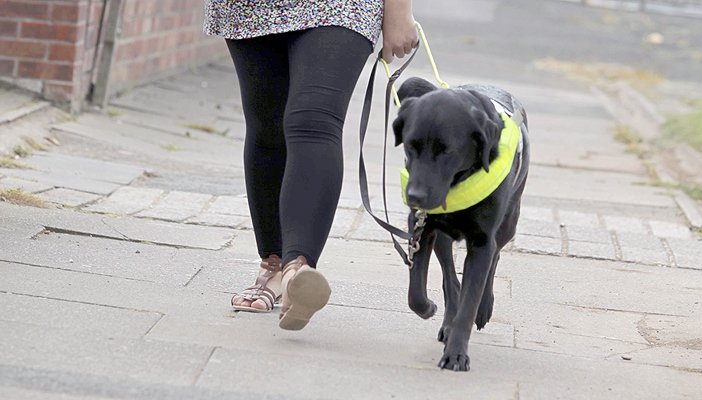Charities call on the Government and European Commission to guarantee travel rights of assistance dog owners after Brexit
Assistance dog owners in the UK have been able to travel easily under the Pet Travel Scheme (PETS) but, after 20 years, our automatic membership is about to expire as the UK's transition period with the European Union ends.

To highlight the situation, RNIB and other charities representing assistance dog owners have written an open letter coordinated by Guide Dogs, which calls on the Government and European Commission for clarification. The Times newspaper is publishing the letter today (29 October).
The implications of the UK becoming an ‘unlisted’ country
We’re hopeful that the situation will be resolved, and that the decision is caught up in the negotiations around the UK’s exit deal with the EU. But in a worst-case scenario, the UK would become an ‘unlisted’ country under the PETS scheme. This would mean additional vaccinations would be required for assistance dogs whose owners wanted to take them abroad. Also, that owners would need to get health certificates before every trip and the routes they could use to take their assistance dog overseas would be restricted. For those living on the border between NI and Ireland, this could be particularly difficult.
My guide dog is not a pet, he is a professional working dog and our partnership is essential to my ability to travel independently. It’s devastating to think that my ability to travel to see family in the Netherlands could be curtailed owing to planned changes to the Pet Passport scheme (Guide dog owner).
Given the short timescales involved and the importance of this issue for many assistance dog owners, we want the European Commission and UK Government to come together and agree that the UK become a 'part one' listed country – like Norway, Switzerland, Iceland and others - which would mean UK pet passports continue to be accepted in the EU.
Our work on Brexit
We've been holding focus groups with blind and partially sighted people to anticipate the effects of Brexit and this was one of the key concerns. Other issues raised by the groups have been the access to medicines and the importance of accessible information, which we have brought to the attention of civil servants and the Government.







